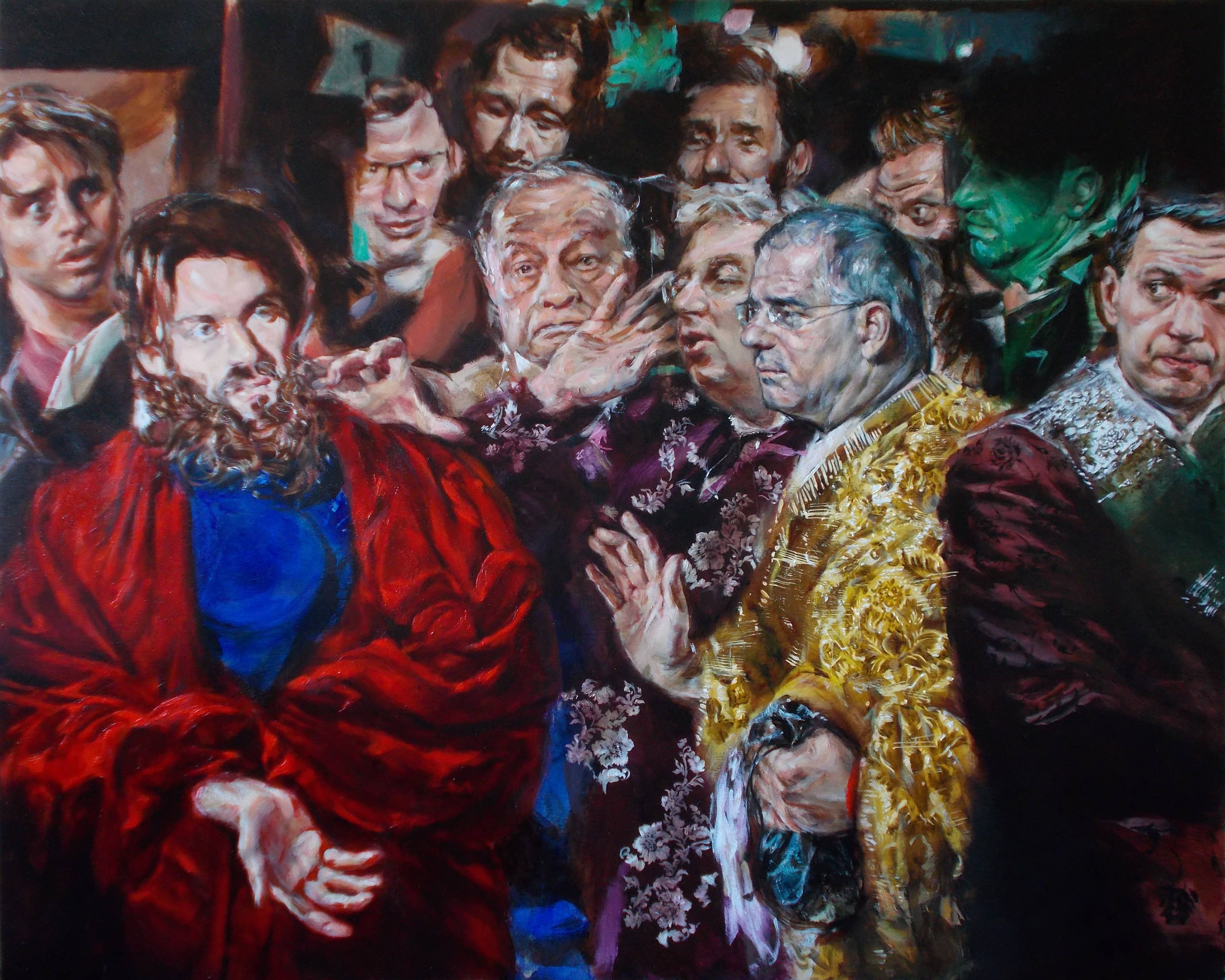
The Traders drive Jesus away from the Temple. (Oil on canvas, 2019.) Courtesy of the artist, Balázs Pálfi.
László Győri says that Orbán’s total offensive on the Hungarian cultural establishment resulted in almost total conformity to the nationalism of Fidesz and the sidelining of independent culture:
Ubu Roi in Hungary
For Shailini Randeria, the systematic erosion of the autonomy of Hungary’s universities represents the government’s is committed to the political control of science:
Orbán’s assault on academic freedom
Poland’s PiS government has, astonishingly, almost exceeded Hungary’s in the speed of its descent into illiberalism ascent, and EU sanctions against both countries have been on the table since 2016 reports Cas Muddle:
The Polish boomerang: On Warsaw’s adoption of the ‘Budapest Model’
Fidesz’s constitutional counter-revolution has shown that democratic culture is more crucial than formal legality to guaranteeing rule of law, writes Gábor Halmai:
The decline of liberal democracy in Europe’s midst
Brussels is not empowered to act as a policeman for liberal democracy in Europe. But, Burkhard Müller asks, should it be?
On the side of democracy
This archive selection is part of our 6/2019 newsletter. Subscribe here to get the bi-weekly updates about latest publications and news on partner journals.







